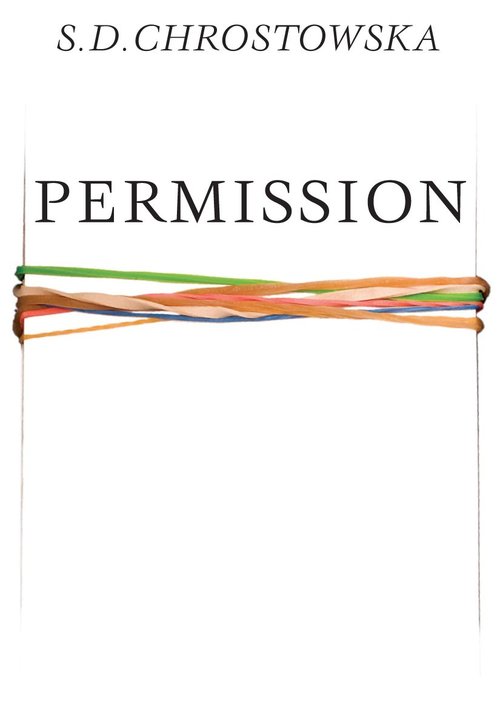
The following is an excerpt from S.D. Chrostowska’s novel, Permission, which was recently published by Dalkey Archive.
Composing a work boils down to creating favorable and even extreme conditions for the emergence of an idea and the precipitation of that idea. Real physical and physiological conditions for tapping into one’s inspiration or, indeed, the lack thereof. All day yesterday I carried in my head the intention to write, but could not find the right conditions for it. I could not even tell if I was under the influence of inspiration. Fed up, around four o’clock, I made my way to the Centre for the History of the Book, where for the next few hours I waited and then listened to a public talk by a world-famous scholar professing to break the pattern of euphoria and depression about the future of the book. He promised to make a “sober,” “philosophical” intervention into this “bipolar prophesying” prevalent in academic circles, but achieved little more than an inventory of existing ideas—without pushing the question of the future of the book far enough to really “make a difference.” In his closing statement, he paraphrased Wilhelm von Humboldt—the university is the only institutional place where the different tonalities of the different enthusiasms of different generations can inspire each other—which later sent me in search of Humboldt’s memorandum of 1810. The lecture ended, a poor man’s reception commenced in a darkling room, whose only appointment, besides a table and rows of empty shelving, was a maquette of the building we stood in (appendaged to the main library), and within a quarter of an hour the last of the lecture’s attendees had dispersed. I, too, promptly left the place, which with each passing minute became physically more oppressive, as I imagined the scale model containing this same room with another miniature of itself, and so on into infinity. I headed over to the book stacks to escape this boxed-in feeling, which bodes poorly for inspiration, to browse through some of the titles mentioned during the lecture. Strange, I reflected on the tram ride back, how much I worked to get inside the university, putatively erected in the Romantic vein—upon freedom and isolation—and where the entire world unrolled itself like a map, as it must to birds in flight. Now—after years of opening doors and closing them quietly behind me—I am left with the abstract sensation of standing inside one of those Chinese boxes, which as you know contain only smaller and smaller versions of themselves. On getting home, I dipped into Humboldt’s writings and found it inspiring fare.
There is a fuller and more immediate effectiveness of a great spirit than...
You have reached your article limit
Sign up for a digital subscription and continue reading all new issues, plus our entire archives, for just $1.50/month.
Already a subscriber? Sign in




